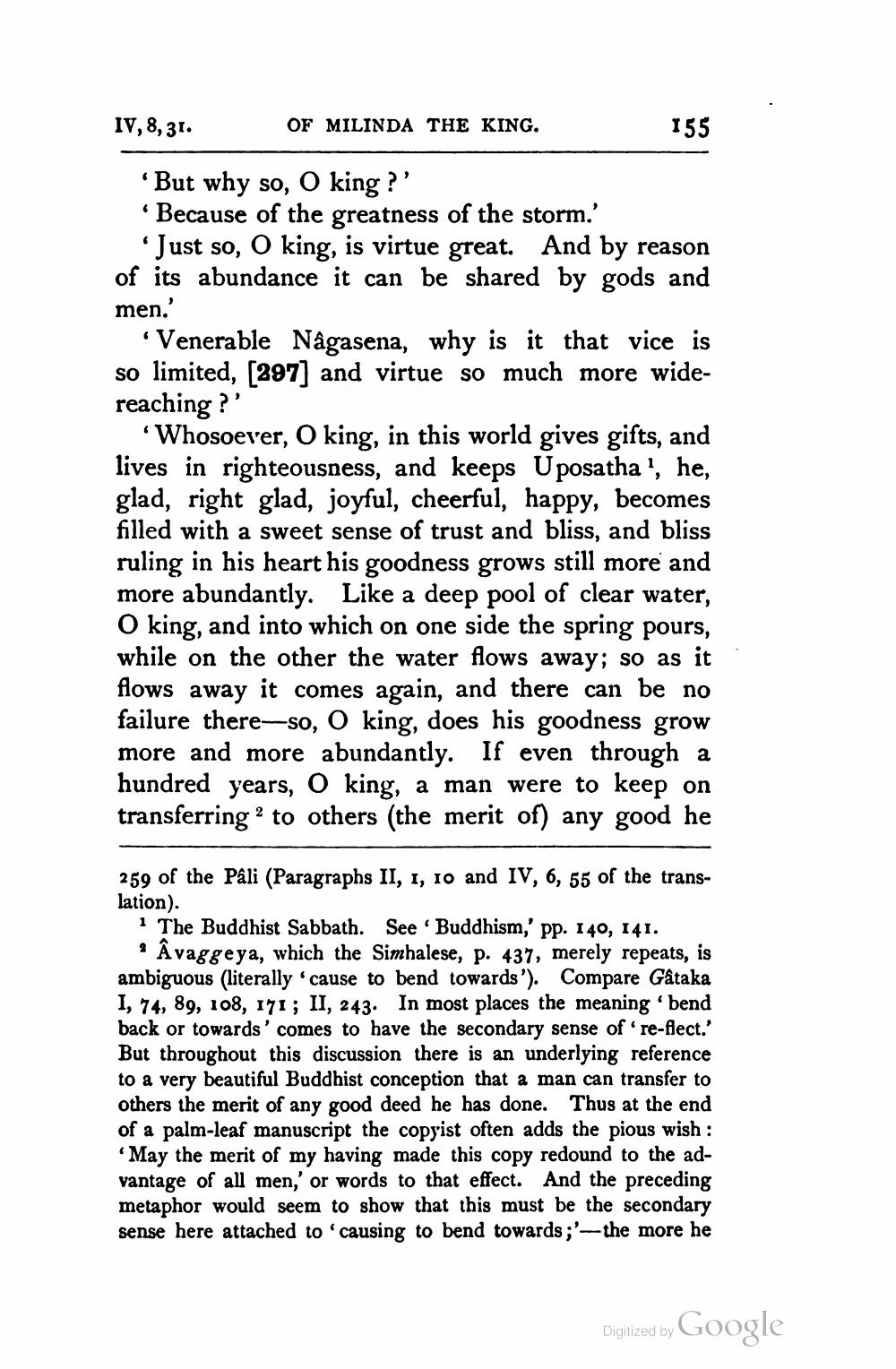________________
IV, 8, 31.
OF MILINDA THE KING.
155
But why so, O king ?' Because of the greatness of the storm.'
Just so, O king, is virtue great. And by reason of its abundance it can be shared by gods and men.'
Venerable Nâgasena, why is it that vice is so limited, [297] and virtue so much more widereaching ?'
'Whosoever, O king, in this world gives gifts, and lives in righteousness, and keeps U posatha ', he, glad, right glad, joyful, cheerful, happy, becomes filled with a sweet sense of trust and bliss, and bliss ruling in his heart his goodness grows still more and more abundantly. Like a deep pool of clear water, O king, and into which on one side the spring pours, while on the other the water flows away; so as it flows away it comes again, and there can be no failure there—so, O king, does his goodness grow more and more abundantly. If even through a hundred years, O king, a man were to keep on transferring to others (the merit of) any good he
259 of the Pali (Paragraphs II, 1, 10 and IV, 6, 55 of the translation). 1 The Buddhist Sabbath. See Buddhism,' pp. 140, 141.
Avaggeya, which the Simhalese, p. 437, merely repeats, is ambiguous (literally 'cause to bend towards'). Compare Gâtaka 1, 74, 89, 108, 171; II, 243. In most places the meaning 'bend back or towards' comes to have the secondary sense ofre-flect.' But throughout this discussion there is an underlying reference to a very beautiful Buddhist conception that a man can transfer to others the merit of any good deed he has done. Thus at the end of a palm-leaf manuscript the copyist often adds the pious wish: May the merit of my having made this copy redound to the advantage of all men,' or words to that effect. And the preceding metaphor would seem to show that this must be the secondary sense here attached to 'causing to bend towards; '--the more he
Digitized by Google




